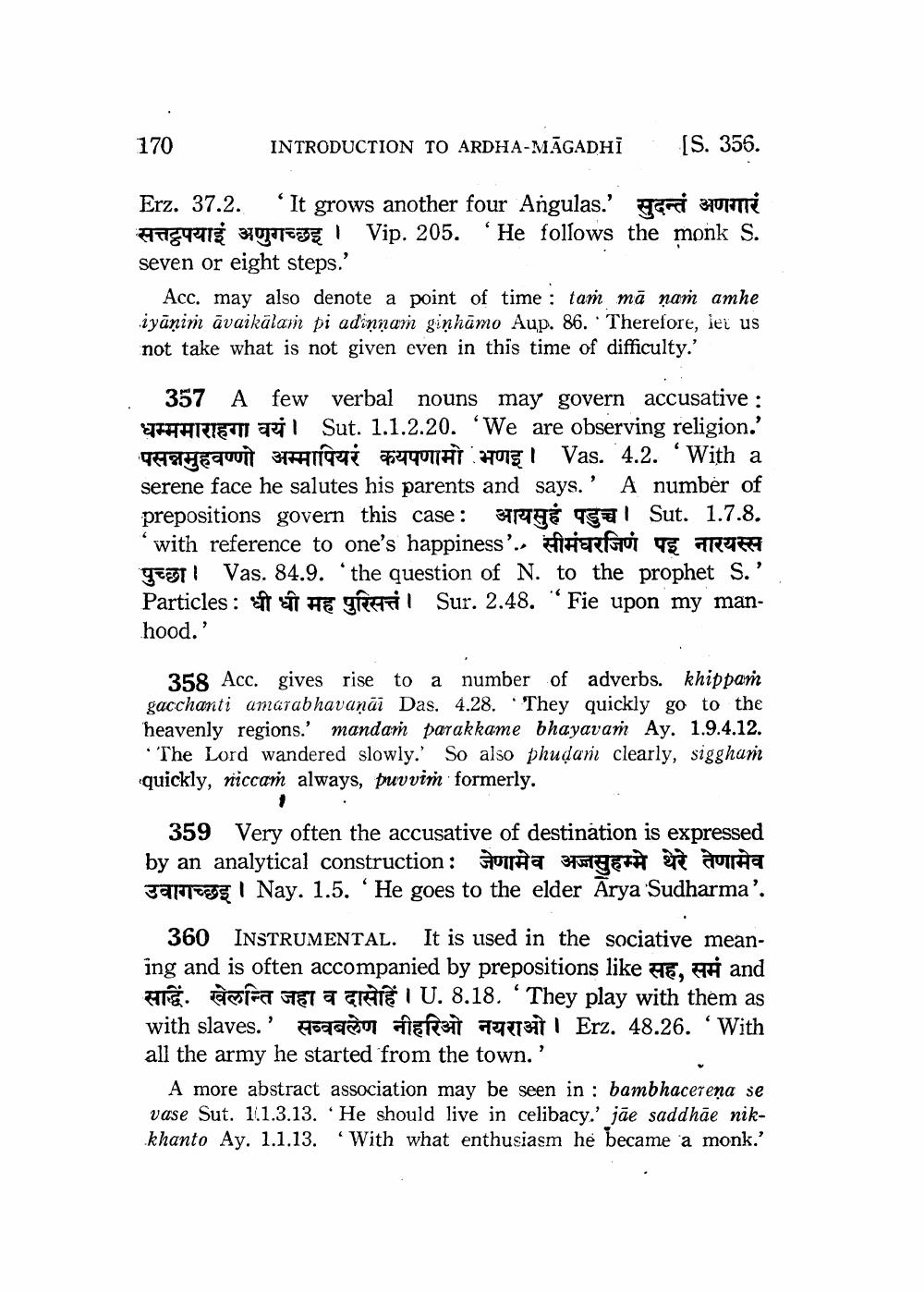________________
170
INTRODUCTION TO ARDHA-MĀGADHI
[S. 356.
Erz. 37.2. “It grows another four Angulas.' gcmoi suri HTET E ! Vip. 205. He follows the monk S. seven or eight steps.'
Acc. may also denote a point of time : tam mā nam amhe iyānim avaikālam pi adinnam ginhāmo Aup. 86. Therefore, let us not take what is not given even in this time of difficulty.'
357 A few verbal nouns may govern accusative : JEHARRESTI II Sut. 1.1.2.20. “We are observing religion.' 49equuit t ai UMT27015 I Vas. 4.2. With a serene face he salutes his parents and says.' A number of prepositions govern this case: spai Sai Sut. 1.7.8. * with reference to one's happiness'., P arfoi re ARTET geet! Vas. 84.9. 'the question of N. to the prophet S.' Particles : E HE STATil Sur. 2.48. “Fie upon my manhood.'
358 Acc. gives rise to a number of adverbs. khippam gacchanti amarabhavaņāi Das. 4.28. They quickly go to the heavenly regions.' mandar parakkame bhayavam Ay. 1.9.4.12. "The Lord wandered slowly.' So also phudan clearly, siggham quickly, niccam always, pruvviñ formerly.
359 Very often the accusative of destination is expressed by an analytical construction : जेणामेव अज्जसुहम्मे थेरे तेणामेव Jamesys | Nay. 1.5. 'He goes to the elder Arya Sudharma'.
360 INSTRUMENTAL. It is used in the sociative meaning and is often accompanied by prepositions like AE, HH and NIE. SIFT HET a CAIE I U. 8.18. 'They play with them as with slaves.' Hogar ERST F it I Erz. 48.26. With all the army he started from the town.'
A more abstract association may be seen in : bambhacerena se vase Sut. 1.1.3.13. 'He should live in celibacy.' jāe saddhāe nikkhanto Ay. 1.1.13. With what enthusiasm he became a monk.'




